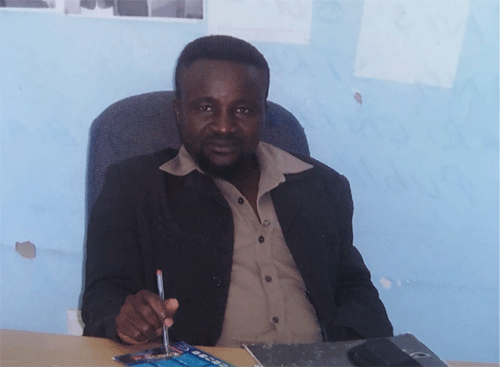My journey into the discovery of the unbelievable wealth of Africa began 26 years ago at the University of Natal in the Pietermaritzburg City of South Africa.
There I started studying Geology, which is the course in which you learn how to go about looking for minerals and how to mine them. The course content is well organised, rich and mind-stimulating.
The most fascinating story ever told by Geology professors in South Africa, if not the whole world, is the unexpected discovery of the largest gold deposit in the world around the city of Johannesburg in South Africa.
The story is told how South Africa got on top of the world as the number one producer of gold and according to reliable statistics was once responsible for more than half of gold produced all over the whole world. It was said that Queen Elizabeth II was very happy with thousands of tons of mineral wealth that was coming from South Africa.
South Africa is not the only country in Africa with astonishing mineral wealth. Countries such as Botswana, DRC, Angola, Ghana, Namibia, Nigeria, Niger, Guinea, Egypt, Zambia, Zimbabwe and Mozambique are awash with vast mineral resources.
The mineral industry of Africa is ranked as the second-largest in the world and 30% of all the minerals produced in the world come from Africa. The continent is ranked as the top producer of Cobalt, Bauxite, Diamonds, vermiculite and
Zircon.
The leading minerals in Africa, with their shares of the world total production, are as follows: platinum (85%), chromite (80%), diamonds (75%), Phosphates(75%), Manganese(60%), Bauxite(30%), Gold (40%) and Cobalt (60%).
In addition to the above-mentioned minerals the following minerals are also produced in Africa: Copper, Iron ore, Lead, Zinc, Uranium, Carbonate Minerals (for making cement) and Tantalite.
The top producers of diamonds in Africa, responsible for 73% of the production of the continent are Botswana, DRC, South Africa and Angola.
About 89% of Gold on the continent is produced by South Africa, Ghana, Tanzania and Mali.
100% of all Uranium in Africa comes from Namibia, Niger and South Africa.
Bauxite deposits are only found in Guinea and Ghana thus the two countries are responsible for 100% of the production on the continent.
South Africa, Mozambique and Egypt produce 94% of all Iron Ore that comes from Africa. Zambia, South Africa, DRC and Egypt are our leading producers of copper with 96% of Africa’s copper.
The major producer of coal on the continent is South Africa produces 99% of all coal on our continent. In 2008 Africa produced 483 tons of gold (i.e 483000 kg or 9660 bags of gold assuming that one bag is 50kg).
Twenty-one countries in Africa are classified by IMF as resource-rich. The Democratic Republic of Congo is considered the richest country in the world regarding natural resources and its untapped deposits of raw materials are estimated to be worth in excess of US$24 trillion (i.e N$528 trillion). That is DRC alone! How about the monetary value of the Natural resources of the whole of Africa?
Even though we are considered to be having a rich continent in terms of natural resources, we happen to be the poorest of the souls in the world. The companies that explore for and mine minerals are all from outside Africa.
The revenue generated from the sale of the minerals goes to the pockets of the nationals of other continents thus accumulating trillions of dollars of wealth in their motherlands.
These mining companies are more likely to declare incorrect low profits thus failing to pay enough taxes that are needed to help Africa invest in its crucial economic sectors, such as health, education, roads, telecommunications network and other economic infrastructures.
As Africans, we need to go back to the drawing board and develop policies and strategies on how we can get a rightful share of the worth delivered from our mineral resources and help develop Africa and its people.
*Dr David Kamati is a former student activist, ex-science student and worked as a human rights activist between 2004 and 2011. He holds six university qualifications in geology including a Doctorate of Science (DSC) from the prestigious University of Natal in South Africa.


